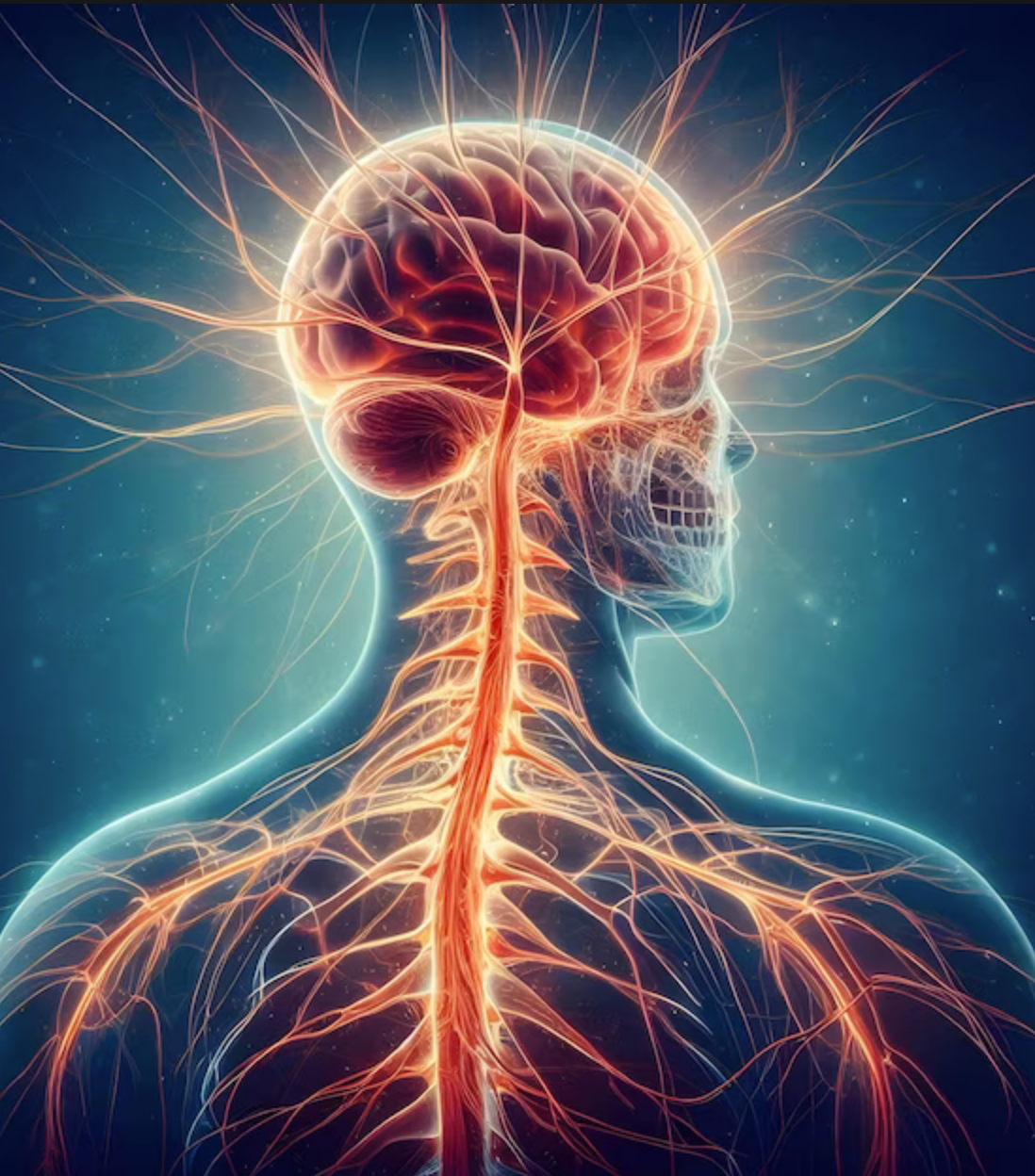The Control Center Of The Body
We invite you into a deep dive into the body's control center. As a student of holistic healing methods, exploring the intricate workings of the nervous system is a journey into the essence of life itself. In this comprehensive guide titled "The Nervous System Autonomic vs. Somatic," we will unravel the importance of both systems and shed light on their distinct roles in maintaining balance within our bodies. This exploration aims to provide clarity on the nervous system function, emphasizing the dynamic interplay between the autonomic and somatic branches. Furthermore, we will delve into a proven solutions for a holistic approach to nervous system issues.
Nervous System Function: A Symphony of CommunicationThe Autonomic Nervous System: Unconscious Harmony
The autonomic nervous system (ANS) functions involuntarily, controlling vital bodily functions without conscious effort. Divided into sympathetic and parasympathetic branches, the ANS orchestrates responses that range from the quickened heartbeat during a stressful moment (sympathetic) to the calming influence that promotes digestion and rest (parasympathetic). This intricate dance between the sympathetic and parasympathetic systems ensures the body adapts to varying situations while maintaining overall equilibrium.
The Somatic Nervous System: Voluntary Motion and Perception
In contrast, the somatic nervous system governs voluntary movements and processes sensory information. This system connects the central nervous system (brain and spinal cord) to the muscles and skin, allowing us to consciously control actions and perceive the world around us. Whether it's lifting a hand, feeling a breeze, or tasting a flavor, the somatic nervous system is at the forefront of our conscious experiences.
The Interplay: Achieving Balance in Body and Mind
Understanding the balance between the autonomic and somatic nervous systems is crucial for overall well-being. An imbalance can lead to various health issues, both physical and mental. For instance, chronic stress can result from an overactive sympathetic response, while disorders like paralysis may arise from somatic nervous system dysfunction. Harmonizing these systems is the key to maintaining optimal nervous system function.
Proven Solutions
Lifestyle Changes
One of the best ways to ensure a properly functioning nervous system is to work with the breath. Many people dedicate time to this throughout the day in the form of breath work, yoga, meditation, or qi gong just to name a few. Incorporating these practices daily along with getting outside more has numerous benefits for the nervous system. Not only do trees and plants cleanse the air, but many plants have been shown to negate electro magnetic frequencies (EMF). Approaching nervous system health from a holistic perspective will always result in the best results.
Proven Solution: Nervous System Tea to Holistically Heal Blue Vervain: Soothing the Overactive Mind
Blue Vervain, with its calming properties, is revered for its ability to ease nervous tension and promote relaxation. By addressing an overactive sympathetic nervous system, Blue Vervain contributes to a more balanced state, fostering tranquility and mental clarity.
Passionflower: Nature's Sedative
Passionflower, known for its sedative effects, has been traditionally used to alleviate anxiety and promote restful sleep. It exerts a calming influence on the central nervous system, making it a valuable ally in addressing stress-related issues.
Yerba Santa: Respiratory Harmony for Nervous Calm
Yerba Santa, with its respiratory benefits, indirectly contributes to nervous system balance. By promoting clear breathing, it supports the parasympathetic system, fostering a state of calmness and relaxation.
Mugwort: Dreamy Tranquility
Mugwort, celebrated for its calming effects, has been associated with vivid dreams and relaxation. It acts as a nervine tonic, soothing the nervous system and promoting a sense of tranquility.
Gotu Kola: Nourishing Brain and Nerves
Gotu Kola, known for its cognitive benefits, nourishes the brain and nerves. It enhances mental clarity and concentration, contributing to overall nervous system health.
Lavender: Aromatherapeutic Bliss
Lavender, with its soothing aroma, has calming effects on the nervous system. Whether inhaled or consumed as a tea, lavender promotes relaxation and helps alleviate stress and anxiety.
St. John's Wort: Mood Elevation
St. John's Wort, recognized for its mood-elevating properties, influences neurotransmitter levels. By supporting emotional well-being, it contributes to a harmonious nervous system.
Ashwagandha: Adaptogenic Resilience
Ashwagandha, an adaptogenic herb, helps the body adapt to stressors. By modulating the stress response, ashwagandha supports the overall health of the nervous system.
Damiana: Sensual Relaxation
Damiana, with its relaxing and euphoric properties, helps relieve nervous tension and stress. It's valued for its ability to promote a sense of relaxation and well-being.
Linden: Calming the Heart and Mind
Linden, known for its calming effects on the heart and nervous system, is a gentle herb that promotes relaxation. It contributes to overall nervous system balance and well-being.
Calm Blend- Your Nervous System Tea: A Ritual of Healing
P1Health's "Calm Blend" combines these herbs mindfully to craft a nervous system tea that nurtures your body and mind. Steep this blend to allow the healing essence of these herbs to infuse into your being.
Conclusion: Embracing Holistic Harmony
In the intricate dance of the nervous system, finding harmony is essential for overall well-being. Understanding the roles of the autonomic and somatic systems allows us to appreciate the delicate balance needed for a healthy mind and body. Embrace the ritual of herbal tea, cultivate balance within, and let the soothing embrace of these herbs guide you on a journey towards nervous system well-being.

